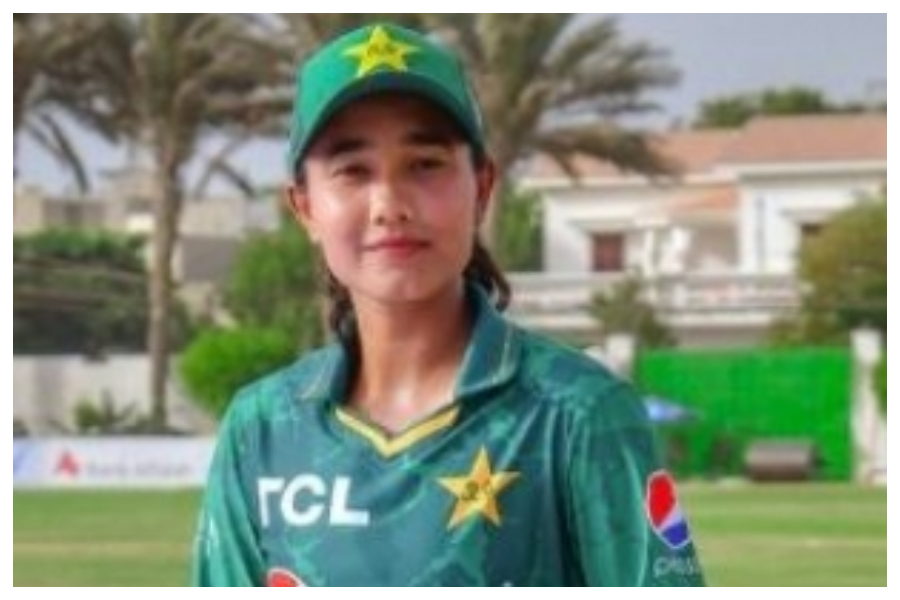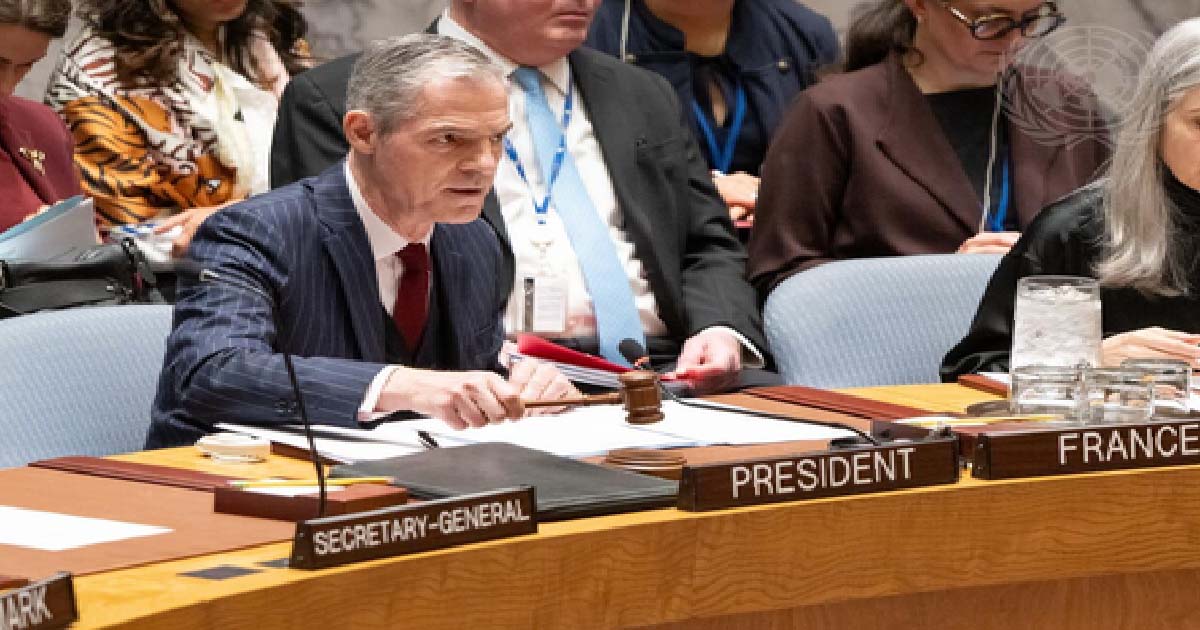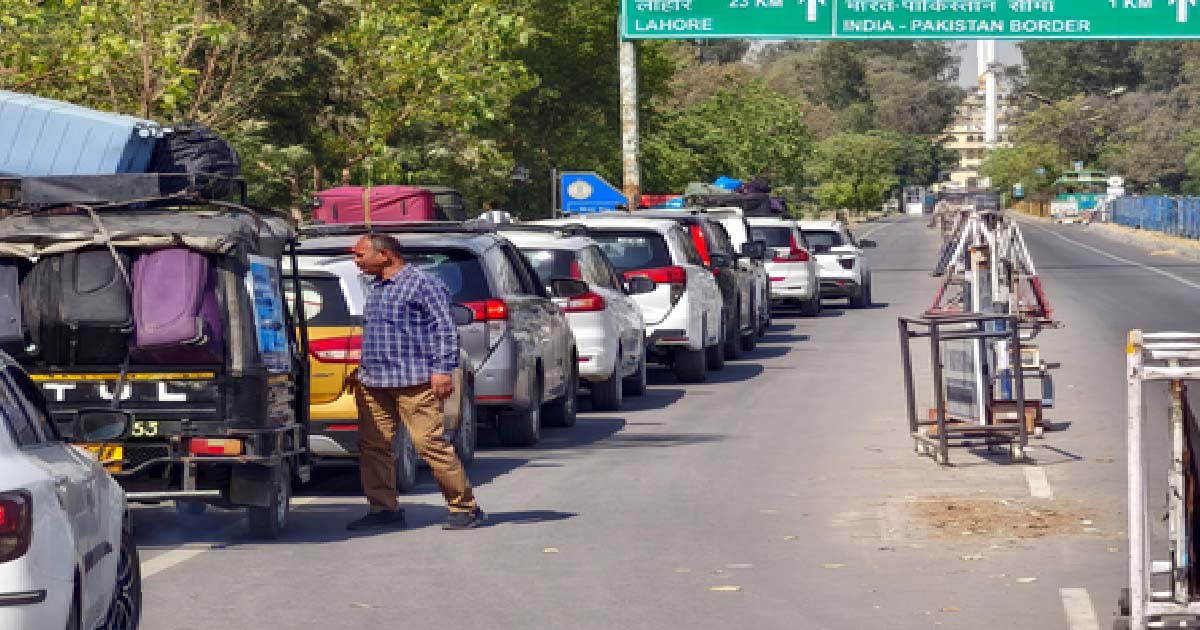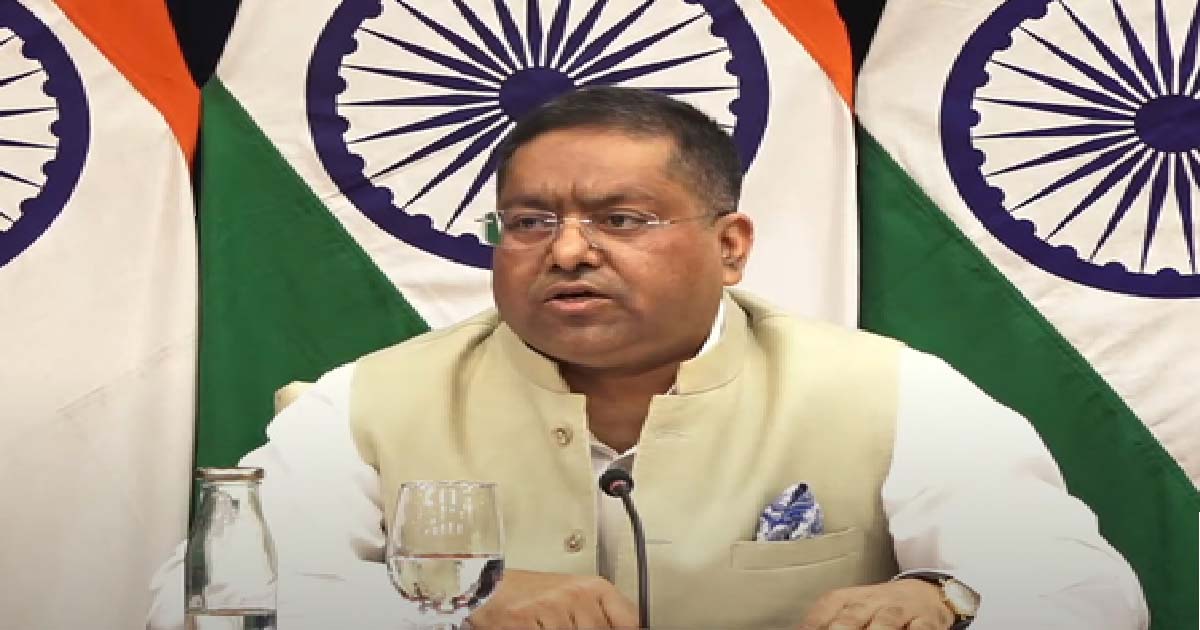International
Tuba Hassan earns central contract of PCB

Promising 21-year-old leg-spinner Tuba Hassan was one of the three first-time women cricketers who were awarded central contracts for the 2022-23 season, which came into effect on Friday.
The other two first-timers are Gul Feroza and Sadaf Shamas, who have been identified as future prospects.
Tuba was adjudged ICC Women’s Player of the Month for May 2022 for her impressive debut series against Sri Lanka. She took five wickets in three T20Is, including three for eight in her debut match.
Tuba was part of the Pakistan women’s team for the ICC Women’s Cricket World Cup 2022 as a travelling reserve.
“I am absolutely thrilled and excited at being given the prestigious central contract for the first time. Hard work has slowly started to pay off, but this is just the beginning. My focus remains on producing strong performances and contributing in my team’s success, rest I am sure will take care of itself as we have seen in this case,” Tuba Hassan said.
“I want to thank all my seniors, teammates, support staff and family members who have backed me in this journey to date. Playing and performing for Pakistan and my team remains my only objective, and with the support of a strong group of people around me, I remain confident that I will improve and live up to their expectations.”
Apart from the three first-timers, Ghulam Fatima, Iram Javed and Sidra Amin have regained their central contracts, which see a 15 per cent increase in retainers across all categories.
Ghulam Fatima had last earned a contract for the 2018-19 season, Iram was last awarded a contract in 2016-17 and Sidra Amin was last given a contract in the 2019-20 season.
The six players who have failed to retain contracts include Kaynat Hafeez, Nahida Khan, Najiha Alvi, Rameen Shamim, Saba Nazir and Syeda Aroob Shah.
As many as eight star performers have been promoted in the Women’s Central Contracts 2022-23.
Aliya Riaz and Nida Dar have been promoted to Category A where they join national team captain Bismah Maroof. Anam Amin, Fatima Sana, Nashra Sandhu and Omaima Sohail have been elevated to Category B, while Muneeba Ali and Ayesha Naseem have been upgraded to Category C.
Javeria Khan, who had an ordinary 2021-22 season by her own standards when she managed 141 runs in 10 ODIs, has been demoted to Category C along with all-rounder Kainat Imtiaz, who scored 61 runs in three ODIs and failed to take a wicket. In her only T20I in the previous season, she took one wicket and scored four runs
Asmavia Iqbal, chair of women’s selection committee said, “Eight players receiving enhanced contracts and three players being offered contracts for the first time is an indicator that we are heading in the right direction, though we still have a long road ahead to narrow the gap with the leading sides. We have made progress in the 2021-22 season and I am sure with the amount of cricket that lies ahead, we will emerge as an improved side at the end of the season.
“Central contracts are not only a way to incentivise, appreciate and reward players for their contributions in the previous season, it is also a method to challenge the players to either reclaim or earn better contracts next season, which is only possible through on-field performances. With the investment being made and the opportunities that are presently available, I am optimistic that we will have more good news to share next year.”
Women’s Central Contracts 2022-23:
Category A (3) – Aliya Riaz, Bismah Maroof and Nida Dar
Category B (5) – Anam Amin, Diana Baig, Fatima Sana, Nashra Sandhu and Omaima Sohail
Category C (5) – Ayesha Naseem, Muneeba Ali, Javeria Khan, Sidra Amin and Sidra Nawaz
Category D (7) – Ghulam Fatima, Gul Feroza, Iram Javed, Kainat Imtiaz, Sadia Iqbal, Sadaf Shamas and Tuba Hassan
International
UNSC asks all countries to cooperate in bringing Pahalgam terrorists, backers to justice

United Nations, April 26: The Security Council has “condemned in the strongest terms” the Pahalgam terrorist attack and urged all countries to cooperate in bringing all those involved in the massacre, to justice.
The members of the Security Council “stressed that those responsible for these killings should be held accountable, and urged all States, in accordance with their obligations under international law and relevant Security Council resolutions, to cooperate actively with all relevant authorities in this regard”, Council President Jerome Bonnafont said in a Press statement on Friday.
A front organisation of the Pakistan-based terrorist group Laskhar-e-Tayiba has owned responsibility for the attack.
The statement issued by France’s Permanent Representative Bonnafont who is the Council president for this month, took a broad view of those involved in the massacre by including the financiers and sponsors.
“The members of the Security Council underlined the need to hold perpetrators, organisers, financiers and sponsors of this reprehensible act of terrorism accountable and bring them to justice”, the statement said.
Pakistan, which is on the Council as an elected member, went along with the other members in endorsing the statement, committing itself – at least on paper – to bringing those involved to justice.
A Press statement expresses the consensus of the Council and carries moral authority, while not being legally binding like a resolution.
The statement also shot down the attempts by some in Pakistan to give terrorist attacks a veneer of justification.
“The members of the Security Council reiterated that any acts of terrorism are criminal and unjustifiable, regardless of their motivation, wherever, whenever and by whomsoever committed”, it said.
The Council members “reaffirmed the need for all States to combat by all means, in accordance with the Charter of the United Nations and other obligations under international law, including international human rights law, international refugee law and international humanitarian law, threats to international peace and security caused by terrorist acts”, the statement added.
Earlier, the spokesperson for Secretary-General Antonio Guterres hinted that a diplomatic effort by him may be afoot.
Asked by a reporter, if Guterres would speak to leaders of India and Pakistan, Spokesperson Stephane Dujarric said that he hoped to have something to share on that later.
Reiterating the condemnation of the terrorist attacks, Dujarric said, “We again urge both the Government of India and the Government of Pakistan to exercise maximum restraint to ensure the situation does not deteriorate further.”
When a reporter asserted that the possibility that “two nuclear countries” might “go to war” was getting insufficient attention, Dujarric said, “I don’t agree with your comment. We are paying very close attention to the situation between India and Pakistan.”
International
Wagah-Attari border closure leaves several families in limbo

Islamabad, April 25: Pakistan and India’s decision to shut down the Wagah-Attari border crossing after the deadly Pahalgam terror attack has forced several citizens from both countries to cut short their visit and rush back home.
On Thursday, after both countries announced closure of border crossing and gave a deadline for citizens to leave for their respective countries, at least 28 Pakistanis nationals returned from India while 105 Indian citizens in Pakistan crossed over into India.
A Hindu family from Balochistan’s Sibi was reportedly denied entry into India after the closure of border crossing.
“We were on our way to Indore in Madhya Pradesh to attend a wedding. Seven members of our family were excited to join our relatives in India and take part in the celebrations. But upon reaching Wagah, we learned that the border had been sealed. We will spend the night at Dera Sahib in Lahore and head back home tomorrow,” said Akshay Kumar.
Meanwhile, a Sikh family from India, in Pakistan to attend a wedding, decided to leave for India immediately.
“We had come to Pakistan for a wedding. While the ceremony took place, several important rituals remained. Once we heard the border was closed, we decided to return immediately,” said Raminder Singh, an Indian national.
A Hindu family from Ghotki in Pakistan’s Sindh province, now residing in New Delhi, was visiting Pakistan for the last two months to meet their relatives. However, they are now unsure about getting permission to return to India.
“There are five of us, including my young son and daughter, uncle and aunt. We all hold Pakistani passports and were granted No Obligation to Return to India (NORI) certificate by India. But uncertainty looms now, said a family member named Indira.
“Families with cross-border ties often bear the brunt of rising tensions between the two neighbours. With tensions between Pakistan and India once again on the rise, human connections across borders are becoming the first casualty,” said Asif Memood, a Lahore-based journalist.
“The closure of the Wagah-Attari border has left many families in limbo, uncertain when they will next reunite with their loved ones,” he added.
International
Murder of Hindu leader: India slams Bangladesh, says killing follows pattern of systematic persecution of Hindu minorities

New Delhi, April 19: India on Saturday issued a sharp condemnation of the abduction and brutal killing of Bhabesh Chandra Roy, a prominent Hindu community leader in northern Bangladesh, calling it part of a “pattern of systematic persecution” of minorities under the country’s interim government.
Ministry of External Affairs (MEA) spokesperson Randhir Jaiswal voiced India’s grave concern, stating that the incident reflects an alarming trend of targetted violence against Hindus and other minority groups in Bangladesh.
“We have noted with distress the abduction and brutal killing of Shri Bhabesh Chandra Roy, a Hindu minority leader in Bangladesh. This killing follows a pattern of systematic persecution of Hindu minorities under the interim government, even as the perpetrators of previous such events roam with impunity,” Jaiswal said in a post on social media platform X.
He added, “We condemn this incident and once again remind the interim government to live up to its responsibility of protecting all minorities, including Hindus, without inventing excuses or making distinctions.”
India has previously expressed similar concerns over rising attacks on minorities in Bangladesh, but this latest incident has drawn particular attention due to Roy’s prominence in the Hindu community.
Roy, who served as the Vice-President of the Biral unit of the Bangladesh Puja Udjapan Parishad, was abducted from his residence in Dinajpur district on Thursday evening. According to police and family accounts, he received a phone call around 4:30 p.m., after which four unidentified men arrived on motorcycles and forcibly took him to Narabari village. He was reportedly assaulted and later found unconscious. He was rushed to a hospital in Dinajpur, where he was declared dead on arrival. His wife, Shantana Roy believes the attackers used the call to confirm his location before carrying out the abduction.
Opposition leaders in India also slammed the shocking incident in the neighbouring country.
Congress President Mallikarjun Kharge highlighted that religious minorities, especially Hindus, are being persecuted in Bangladesh.
“Attacks on other religious minorities are also continuing. Recently, the Chief Advisor of Bangladesh made a very condemnable and disappointing comment about the northeastern states of India. The persecution of religious minorities in Bangladesh, human rights violations, and the attempt to erase the memories of the 1971 Liberation War are efforts to weaken the relationship between India and Bangladesh. From 1971 till today, India has always wished for peace and prosperity for all the people of Bangladesh. This is in the best interest of the subcontinent,” he said.
-

 Crime3 years ago
Crime3 years agoClass 10 student jumps to death in Jaipur
-

 Maharashtra1 year ago
Maharashtra1 year agoMumbai Local Train Update: Central Railway’s New Timetable Comes Into Effect; Check Full List Of Revised Timings & Stations
-

 Maharashtra1 year ago
Maharashtra1 year agoMumbai To Go Toll-Free Tonight! Maharashtra Govt Announces Complete Toll Waiver For Light Motor Vehicles At All 5 Entry Points Of City
-

 Maharashtra1 year ago
Maharashtra1 year agoFalse photo of Imtiaz Jaleel’s rally, exposing the fooling conspiracy
-

 National News1 year ago
National News1 year agoMinistry of Railways rolls out Special Drive 4.0 with focus on digitisation, cleanliness, inclusiveness and grievance redressal
-

 Maharashtra1 year ago
Maharashtra1 year agoMaharashtra Elections 2024: Mumbai Metro & BEST Services Extended Till Midnight On Voting Day
-

 National News1 year ago
National News1 year agoJ&K: 4 Jawans Killed, 28 Injured After Bus Carrying BSF Personnel For Poll Duty Falls Into Gorge In Budgam; Terrifying Visuals Surface
-

 Crime1 year ago
Crime1 year agoBaba Siddique Murder: Mumbai Police Unable To Get Lawrence Bishnoi Custody Due To Home Ministry Order, Says Report












